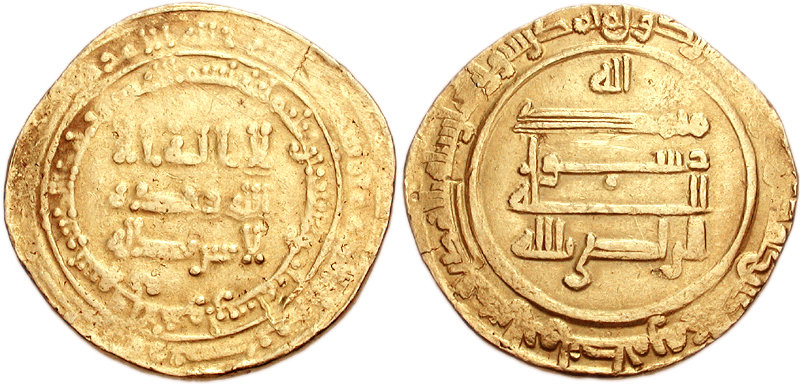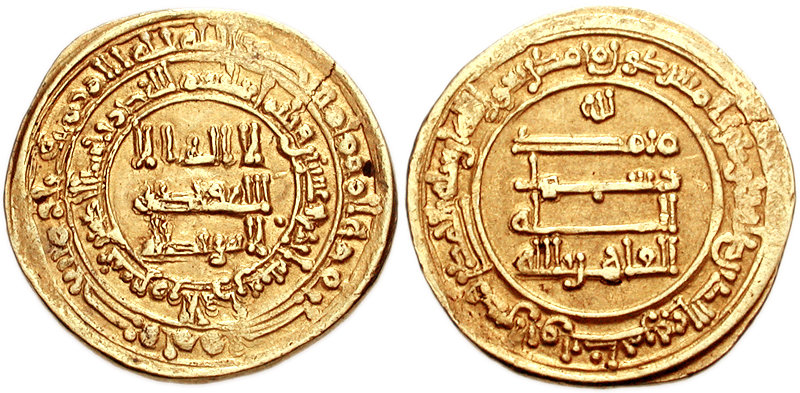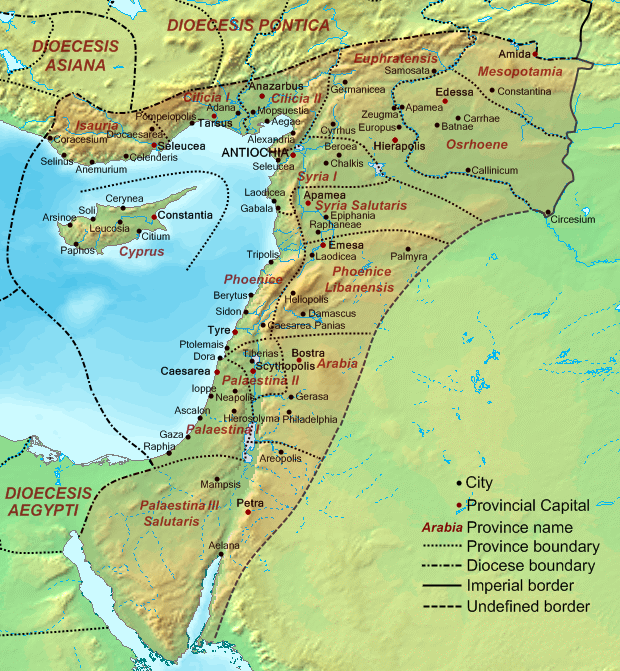|
Al-R─üßĖŹ─½
Abu'l-Abbas Ahmad (Muhammad) ibn Ja'far al-Muqtadir ( ar, žŻž©┘ł ž¦┘äž╣ž©ž¦ž│ žŻžŁ┘ģž» (┘ģžŁ┘ģž») ž©┘å ž¼ž╣┘üž▒ ž¦┘ä┘ģ┘鞬ž»ž▒, Ab┼½ al-╩┐Abb─üs AßĖźmad (MußĖźammad) ibn al-Muqtadir; December 909 ŌĆō 23 December 940), usually simply known by his regnal name al-Radi bi'llah ( ar, ž¦┘äž▒ž¦žČ┘Ŗ ž©ž¦┘ä┘ä┘ć, al-R─üßĖŹ─½ bi'll─üh, Content with God), was the twentieth Caliph of the Abbasid Caliphate, reigning from 934 to his death. He died on 23 December 940 at the age of 31. His reign marked the end of the caliph's political power and the rise of military strongmen, who competed for the title of . Early life The future al-Radi was born on 20 December 909, to the caliph al-Muqtadir () and a Greek-born slave concubine named Zalum. At the age of four, he received the nominal governorship of Egypt and the Maghreb, and was sent with the commander-in-chief Mu'nis al-Muzaffar to Egypt, who became his tutor. When Mu'nis and al-Muqtadir fell out in 927, Abu'l-Abbas and the vizier Ibn ... [...More Info...] [...Related Items...] OR: [Wikipedia] [Google] [Baidu] |
Al-Muqtadir
AbuŌĆÖl-FaßĖŹl Ja╩┐far ibn Ahmad al-Mu╩┐taßĖŹid ( ar, žŻž©┘ł ž¦┘ä┘üžČ┘ä ž¼ž╣┘üž▒ ž©┘å žŻžŁ┘ģž» ž¦┘ä┘ģž╣ž¬žČž») (895 ŌĆō 31 October 932 AD), better known by his regnal name Al-Muqtadir bi-ll─üh ( ar, ž¦┘ä┘ģ┘鞬ž»ž▒ ž©ž¦┘ä┘ä┘ć, "Mighty in God"), was the eighteenth Caliph of the Abbasid Caliphate from 908 to 932 AD (295ŌĆō320 AH), with the exception of a brief deposition in favour of al-Qahir in 928. He came to the throne at the age of 13, the youngest Caliph in Abbasid history, as a result of palace intrigues. His accession was soon challenged by the supporters of the older and more experienced Abdallah ibn al-Mu'tazz, but their attempted coup in December 908 was quickly and decisively crushed. Al-Muqtadir enjoyed a longer rule than any of his predecessors, but was uninterested in government. Affairs were run by his officials, although the frequent change of viziersŌĆöfourteen changes of the head of government are recorded for his reignŌĆöhampered the effectiveness of the administr ... [...More Info...] [...Related Items...] OR: [Wikipedia] [Google] [Baidu] |
Ibn Muqla
Abu Ali Muhammad ibn Ali ibn Muqla ( ar, žŻž©┘ł ž╣┘ä┘Ŗ ┘ģžŁ┘ģž» ž©┘å ž╣┘ä┘Ŗ ž¦ž©┘å ┘ģ┘é┘äž®, Ab┼½ ╩┐Al─½ MußĖźammad ibn ╩┐Al─½ ibn Muqla; 885/6 – 20 July 940/1), commonly known as Ibn Muqla, was an official of the Abbasid Caliphate of Persian origin who rose to high state posts in the early 10th century. His career culminated in his own assumption of the vizierate at Baghdad thrice: in 928ŌĆō930, 932ŌĆō933 and 934ŌĆō936. Unable to successfully challenge the growing power of regional emirs, he lost his position to the first '' amir al-umara'', Ibn Ra'iq, and died in prison. He was also a noted calligrapher, inventing ''al-khatt al-mans┼½b'' () and '' khatt ath-thuluth'' (). Life Early life and career Ibn Muqla was born in Baghdad, the capital of the Abbasid Caliphate, in AH 272 (885/6 CE).. His career in public service began in Fars, where he served as tax collector. His rise to power in the central government came in 908, under the patronage of the powerful vizier Abu ' ... [...More Info...] [...Related Items...] OR: [Wikipedia] [Google] [Baidu] |
Al-Muqtadir
AbuŌĆÖl-FaßĖŹl Ja╩┐far ibn Ahmad al-Mu╩┐taßĖŹid ( ar, žŻž©┘ł ž¦┘ä┘üžČ┘ä ž¼ž╣┘üž▒ ž©┘å žŻžŁ┘ģž» ž¦┘ä┘ģž╣ž¬žČž») (895 ŌĆō 31 October 932 AD), better known by his regnal name Al-Muqtadir bi-ll─üh ( ar, ž¦┘ä┘ģ┘鞬ž»ž▒ ž©ž¦┘ä┘ä┘ć, "Mighty in God"), was the eighteenth Caliph of the Abbasid Caliphate from 908 to 932 AD (295ŌĆō320 AH), with the exception of a brief deposition in favour of al-Qahir in 928. He came to the throne at the age of 13, the youngest Caliph in Abbasid history, as a result of palace intrigues. His accession was soon challenged by the supporters of the older and more experienced Abdallah ibn al-Mu'tazz, but their attempted coup in December 908 was quickly and decisively crushed. Al-Muqtadir enjoyed a longer rule than any of his predecessors, but was uninterested in government. Affairs were run by his officials, although the frequent change of viziersŌĆöfourteen changes of the head of government are recorded for his reignŌĆöhampered the effectiveness of the administr ... [...More Info...] [...Related Items...] OR: [Wikipedia] [Google] [Baidu] |
Hanbali
The Hanbali school ( ar, ┘▒┘ä┘Æ┘ģ┘Äž░┘Æ┘ć┘Äž© ┘▒┘ä┘ÆžŁ┘Ä┘å█óž©┘Ä┘ä┘É┘Ŗ, al-maßĖÅhab al-ßĖźanbal─½) is one of the four major traditional Sunni schools (''madhahib'') of Islamic jurisprudence. It is named after the Arab scholar Ahmad ibn Hanbal (d. 855), and was institutionalized by his students. The Hanbali madhhab is the smallest of four major Sunni schools, the others being the Hanafi, Maliki and Shafi`i. The Hanbali school derives ''sharia'' primarily from the ''Qur'an'', the ''Hadiths'' (sayings and customs of Muhammad), and the views of Sahabah (Muhammad's companions). In cases where there is no clear answer in sacred texts of Islam, the Hanbali school does not accept ''istihsan'' (jurist discretion) or '''urf'' (customs of a community) as a sound basis to derive Islamic law, a method that Hanafi and Maliki Sunni '' madh'habs'' accept. Hanbali school is the strict traditionalist school of jurisprudence in Sunni Islam. It is found primarily in the countries of Saudi Arabia ... [...More Info...] [...Related Items...] OR: [Wikipedia] [Google] [Baidu] |
Muhammad Ibn Yaqut
Abu Bakr Muhammad ibn Yaqut () was an official who played a major role in the tumultuous political affairs of the Abbasid Caliphate in 930ŌĆō935, particularly during the reign of al-Qahir (932ŌĆō934) and the early months of the reign of ar-Radi, when he was the most powerful man in the state. His rivals secured his dismissal and imprisonment in April 935, and he died in prison soon after. Under al-Muqtadir Muhammad's father Yaqut was serving as head chamberlain (''hajib'') of Caliph al-Muqtadir () in 930, when Muhammad was appointed head of the security forces (''sahib al-shurta'') in the Abbasid capital, Baghdad, which at the time was plagued by armed clashes between rival factions in the military; during one such clash in February, Muhammad intervened on the side of the Hujariyya cavalry, forcing their opponents of the infantry to abandon the city, except for a contingent of black African troops who surrendered. The latter mutinied because of pay arrears a few months later, and w ... [...More Info...] [...Related Items...] OR: [Wikipedia] [Google] [Baidu] |
Ali Ibn Isa Al-Jarrah
╩┐Al─½ ibn ╩┐─¬s─ü ibn D─ü'┼½d ibn al-Jarr─üßĖź (Dayr Qunna, 859 ŌĆō Baghdad, 1 August 946), was a Persian official of the Abbasid Caliphate. Descended from a family with long history of service in the Abbasid government, he rose to power in the Abbasid court, serving as vizier in 913ŌĆō917, 918ŌĆō923, and 927ŌĆō928. Ali ibn Isa's political career, coinciding with the terminal decline of the Abbasid state, was turbulent, marked by a power struggle with his rival Abu'l-Hasan Ali ibn al-Furat Abu'l-Hasan Ali ibn Muhammad ibn Musa ibn al-Hasan ibn al-Furat () (855 ŌĆō 18 July 924) was a senior official of the Abbasid Caliphate who served three times as vizier under Caliph al-Muqtadir. Ali emerged into prominence as an able fiscal admin ... and his supporters, resulting in frequent periods of exile. In contrast to the largesse and extravagance of Ibn al-Furat, Ali ibn Isa was austere and a determined opponent of corruption, which earned him many enemies. Nevertheless, he was later r ... [...More Info...] [...Related Items...] OR: [Wikipedia] [Google] [Baidu] |
Vizier (Abbasid Caliphate)
The vizier ( ar, ┘łž▓┘Ŗž▒, waz─½r) was the senior minister of the Abbasid Caliphate, and set a model that was widely emulated in the Muslim world. Many viziers came to enjoy considerable power, even at times eclipsing the Abbasid caliphs and using them as puppets. The majority of the viziers were of non-Arab origin, and several were also notable patrons of poets and scholars, sponsoring the Translation Movement as well as religious works. History The term ''waz─½r'' originally meant "helper", and appears in this sense in the Quran. It was later adopted as a title, in the form of () by the proto-Shi'a leaders al-Mukhtar and Abu Salama. Under the Abbasid caliphs, the term acquired the meaning of 'representative' or 'deputy'. Early period The exact origins of the office of vizier are not entirely clear. Some historians have suggested that it should be traced to pre-Islamic practices in Sasanian Persia (cf. ''wuzurg framadar''), but others have stressed an independent evolution in ... [...More Info...] [...Related Items...] OR: [Wikipedia] [Google] [Baidu] |
Al-Masudi
Al-Mas'udi ( ar, žŻ┘Äž©┘Å┘ł ┘▒┘ä┘ÆžŁ┘Äž│┘Ä┘å ž╣┘Ä┘ä┘É┘Ŗ┘æ ┘▒ž©┘Æ┘å ┘▒┘ä┘ÆžŁ┘Åž│┘Ä┘Ŗ┘Æ┘å ┘▒ž©┘Æ┘å ž╣┘Ä┘ä┘É┘Ŗ┘æ ┘▒┘ä┘Æ┘ģ┘Äž│┘Æž╣┘Å┘łž»┘É┘Ŗ┘æ, '; ŌĆō956) was an Arab historian, geographer and traveler. He is sometimes referred to as the "Herodotus of the Arabs". A polymath and prolific author of over twenty works on theology, history (Islamic and universal), geography, natural science and philosophy, his celebrated magnum opus '' Mur┼½j al-Dhahab wa-Ma'─üdin al-Jawhar'' ( ar, ┘ģ┘Åž▒┘Å┘łž¼ ┘▒┘äž░┘Ä┘æ┘ć┘Äž© ┘ł┘Ä┘ģ┘Äž╣┘Äž¦ž»┘É┘å ┘▒┘ä┘Æž¼┘Ä┘ł┘Æ┘ć┘Äž▒, link=no), combines universal history with scientific geography, social commentary and biography, and is published in English in a multi-volume series as '' The Meadows of Gold and Mines of Gems''. Birth, travels and literary output Apart from what Al-Mas'udi writes of himself little is known. Born in Baghdad, he was descended from Abdullah Ibn Mas'ud, a companion of Muhammad. He mentions many scholar associates met on his travels thr ... [...More Info...] [...Related Items...] OR: [Wikipedia] [Google] [Baidu] |
Al-Qahir
Abu Mansur Muhammad ibn Ahmad al-Mu'tadid ( ar, žŻž©┘ł ž¦┘ä┘ģ┘åžĄ┘łž▒ ┘ģžŁ┘ģž» ž©┘å žŻžŁ┘ģž» ž¦┘ä┘ģž╣ž¬žČž», Ab┼½ al-Manß╣Ż┼½r MußĖźammad ibn AßĖźmad al-Mu╩┐taßĖŹid), usually known simply by his regnal title Al-Qahir bi'llah ( ar, ž¦┘ä┘鞦┘ćž▒ ž©ž¦┘ä┘ä┘ć, al-Q─ühir bi-'ll─üh, Victorious by the will of God), was the nineteenth Caliph of the Abbasid Caliphate from 932 to 934. He was born 286 AH (899 C.E.) and died 339 AH (950 C.E.). Early life Al-Qahir was a son of the 16th Abbasid caliph, al-Mu'tadid (), and brother of the 18th Caliph, al-Muqtadir (). The mother of al-Qahir was a concubine called Fitnah. (She was the mother of Al-Mu'tadid's third son, Al-Qahir). The full name of Al-Qahir was Muhammad ibn Ahmad al-Mu'tadid al-Qahir bi'llah and his Kunya was Abu Mansur. Rise to the throne Al-Qahir came to the throne as part of his brother's conflict with the increasingly powerful commander-in-chief, Mu'nis al-Muzaffar. He was first chosen as Caliph in March 929, when Mu'nis laun ... [...More Info...] [...Related Items...] OR: [Wikipedia] [Google] [Baidu] |
Bilad Al-Sham
Bilad al-Sham ( ar, ž©┘É┘ä┘Äž¦ž» ž¦┘äž┤┘Ä┘枦┘ģ, Bil─üd al-Sh─üm), often referred to as Islamic Syria or simply Syria in English-language sources, was a province of the Rashidun, Umayyad, Abbasid, and Fatimid caliphates. It roughly corresponded with the Byzantine Diocese of the East, conquered by the Muslims in 634ŌĆō647. Under the Umayyads (661ŌĆō750) Bilad al-Sham was the metropolitan province of the Caliphate and different localities throughout the province served as the seats of the Umayyad caliphs and princes. Bilad al-Sham was first organized into the four '' ajnad'' (military districts; singular ''jund'') of Filastin (Palestine), al-Urdunn (Jordan), Dimashq (Damascus), and Hims (Homs), between 637 and 640 by Caliph Umar following the Muslim conquest. The ''jund'' of Qinnasrin was created out of the northern part of Hims by caliphs Mu'awiya I () or Yazid I (). The Jazira (Upper Mesopotamia) was made an independent province from the Mesopotamian part of Qinnasrin by ... [...More Info...] [...Related Items...] OR: [Wikipedia] [Google] [Baidu] |
Vizier (Abbasid Caliphate)
The vizier ( ar, ┘łž▓┘Ŗž▒, waz─½r) was the senior minister of the Abbasid Caliphate, and set a model that was widely emulated in the Muslim world. Many viziers came to enjoy considerable power, even at times eclipsing the Abbasid caliphs and using them as puppets. The majority of the viziers were of non-Arab origin, and several were also notable patrons of poets and scholars, sponsoring the Translation Movement as well as religious works. History The term ''waz─½r'' originally meant "helper", and appears in this sense in the Quran. It was later adopted as a title, in the form of () by the proto-Shi'a leaders al-Mukhtar and Abu Salama. Under the Abbasid caliphs, the term acquired the meaning of 'representative' or 'deputy'. Early period The exact origins of the office of vizier are not entirely clear. Some historians have suggested that it should be traced to pre-Islamic practices in Sasanian Persia (cf. ''wuzurg framadar''), but others have stressed an independent evolution in ... [...More Info...] [...Related Items...] OR: [Wikipedia] [Google] [Baidu] |

.jpg)




